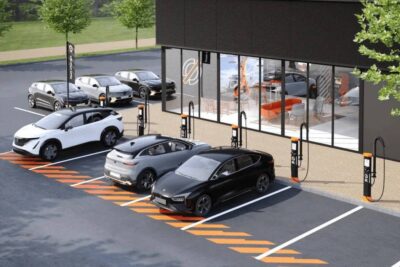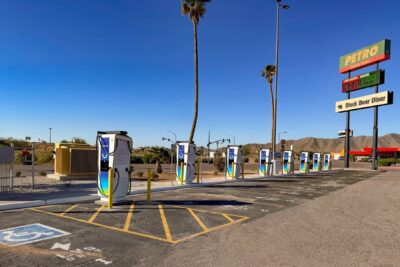UK: EV Energy Taskforce launches final report
Britain’s EV Energy Taskforce launched their final report in central London today. It includes 21 proposals on which 350 actors from industry, academia and politics agreed upon. However, it may prove a toothless yet bold talking tiger when it comes to regulation, for now.
Set up by the LowCVP on behalf of the government, the Taskforce aimed to “bring together the auto and energy sectors to ensure that the GB energy system can accelerate the mass take-up of electric vehicles”. Naturally, smart charging and interoperability featured large on the agenda. The EVET envisions all wall boxes to smart charge by default from next year. Moreover, roaming or interoperability should be introduced no later than 2021 as well, according to the report.
While the report’s proposals include calls for international standardisation, for which “the government should establish a body with industry,” our inquiry into which standards these could be was left on hopes for a “post-Brexit cooperation efforts to result in similar or ideally the same standards,” according to panellist Howard Porter, CEO of BEAMA. His colleague Mike Hawes from the Society of Motor Manufacturers and Traders (SMMT) also stressed that they “always prefer international harmonisation over a patchwork of single solutions”. At the same time, he pointed to a “divergence” over data protection laws between the UK and the continent.
Data sharing is one of the issues the market and government will rely upon both when aiming for central planning, and when taking a consumer’s perspective. Here, Sam Hollister, Director of Economics and Corporate Services at Energy UK summed up the Taskforce’s position with regards to smart charging as follows: “Smart charging must be a default option to balance the demands from customers as well as the energy network providers.” Consumers may actively opt-out, i.e. in case they need to charge the electric car fast before the night is over. In terms of public charging, it wants to see a “seamless EV charging experience between public charge points by 2021,” possible solutions including a single smartphone app, or pay-as-you-go and contactless debit-card payments.
However, the proposals in the report come as suggestions. The EV Taskforce has “no regulatory power,” clarified Philip New, Chief Executive for Energy Systems Catapult and the Chair of the group when asked by electrive. Instead, it was set up on behalf of the government and “represents the different opinions on what needs to happen to get things done,” he added. Things here being to supply the infrastructure requirements for electric vehicles to become an integral part of the broader transformation of the UK’s energy system.
At the same time, participants stressed the spirit of collaboration and hunger for having industry-wide communication. While the EV Taskforce will not continue its work in the current set-up, New said that there is “support from industry groups for something like this to continue”. He also called on the UK government and its regulator for gas and electricity markets, Ofgem, to establish a “more coherent way of planning coordination at local as well as national levels,” a point featuring multiple times in the proposals as well.
The EV Energy Taskforce estimates the cost for infrastructure spending required to prepare the UK electricity networks for the advance of electric transport to be in the multi-billion-pound range. To keep the cost down, it needs involvement from all sides. This also includes a campaign to educate the public on the benefits of smart charging, with the Taskforce suggesting an existing independent organisation could take this on as soon as 2022.
The Taskforce was established following the Zero Emission Vehicle Summit in September 2018, to find solutions to maximise the benefits arising from the electric vehicle transition for motorists, the energy industry and broader society by capitalising on innovations.
Over 350 organisations that have been involved in the EV Energy Taskforce include ABB, BMW UK, BP, British Gas, EDF Energy, Nissan Motor GB, Nuvve, Ricardo, Schneider Electric, Shell, Siemens, Vattenfall, and Tesla to name but a few.
You can find the full report with the 21 proposals following the link for download below.





1 Comment